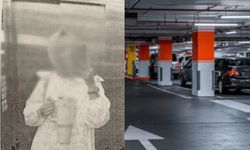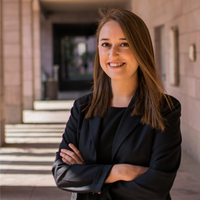Political-psychological analysis of Turkish Elections
Mahir Yeşildal
The general parliamentary and presidential elections were held in Turkey on May 14. Despite various debates, speculation claims, and the anticipated tensions before the elections, the elections were largely carried out without any problems. The high participation rate in the election was a reflection of the public's confidence in representative democracy. This article aims to evaluate the attitudes of the government and the opposition before the elections according to the discipline of political psychology.
The ruling party, the Justice and Development Party (AK Party), led by President Recep Tayyip Erdoğan, and the People's Alliance, which consists mainly of nationalist and Islamist parties, participated in the elections, along with the main opposition party, the Republican People's Party (CHP), led by Kemal Kılıçdaroğlu, and the Nation Alliance, composed of disparate parties across the political spectrum. Due to the threat of closure of the Kurdish political movement, its new party, the Green Left Party, participated in the elections with the Labor and Freedom alliance and also supported Kılıçdaroğlu, who is also an Alevi Kurd, in the presidential elections. The Victory Party, which represents the far right and follows a Wilders-like policy especially against refugees, also participated in the elections with the Ancestor Alliance and supported Sinan Oğan as the presidential candidate. There was also Muharrem İnce, Erdoğan's former rival, who ran independently for the presidency. However, İnce withdrew two days before the election due to allegations of receiving money and rumors of a sex tape.
Voting in democratic societies is an action that enables public participation in political life. This participation is a way to ensure the effective continuation of the democratic system. Individuals living in democratic societies determine political power by choosing from different options. This situation obliges political parties, which propose different solutions for social problems and compete with each other, to consider the preferences of the voters while forming their proposals. However, we see that these general propositions and findings did not progress in this way in the Turkish elections after the transition to the Presidential system.
The main political fault line in Turkey has not been shaped over issues and divisions in the modern world such as secular-Islamist, liberal-conservative, Kurdish-Turkish, Alevi-Sunni. The main fault line in Turkey for many years has been love-hatred for Tayyip Erdoğan. It is difficult for a society divided over a personality cult to make rational decisions about its own future, as for example, the principle of justice and rule of law might be reduced to an 'unnecessary' issue for you. The issue of whether a market-oriented approach or a state interventionist understanding will lead to more prosperity becomes secondary. The love-hate dichotomy becomes decisive.
Nevertheless, Turkey entered the elections with a tense and loaded agenda. The Great Southeast Earthquake that occurred on February 6, the economic crisis, intellectuals like Osman Kavala held in prisons, restrictions on freedom of expression, and pressures on the Kurdish political movement were being discussed. The silent majority, who displayed a protective stance based on the country's national unity and integrity, was confronted with the hatred and anger of mostly white-collar workers who felt they were not free enough in social and conventional media.
And the People's Alliance won the parliamentary general elections by a wide margin, while the presidential election went to the second round, and it would not be surprising if Erdoğan emerged with a victory. So why did this happen?
What Did the People's Alliance Do?
In political psychology, when examining voters' voting behavior, the importance of party identification based on emotional proximity is emphasized. The majority of voters develop a 'long-term' emotional closeness to a particular political party or leader from an early age. The most important motivation underlying this is largely to be internally 'consistent' and resistant to change. Cognitive consistency provides a comfort zone by preventing the individual from experiencing conflict in their inner world. After a while, commitment to a party or leader and high-level identification implants the idea that everything related to that party/leader is 'yours'. And the resulting sense of belonging causes you to 'filter' the wrongs of your party/leader that do not align with you or that you do not desire. It should be noted that the AK Party has used voter 'loyalty' very well.
Yet, no one would expect the ruling party to get such high votes during a period in which no other place in the world has such high inflation, youth unemployment is continuously increasing, the dollar is being suppressed, and the rent for even a shanty house is above the minimum wage. The whole world witnessed a reversal of Demirel's pot metaphor. Because the government has been tightly attached to the discourse of 'survival' for a while. The constant expression of the narrative that there is a government fighting valiantly against organizations threatening the country, such as the PKK, FETÖ, and some international 'networks', which will divide the country and try to turn Turkey into Syria. Also, the trauma of the July 15 coup attempt and the national victory sentiment derived from it are still very much alive. An attempt was made to create an elected trauma in the 100th year of the Republic of Turkey, which was not established with a national trauma, but with a national victory. With historical series broadcasted on the state television TRT, the Ottoman legacy was glorified and the idea 'we actually lost these' was hammered into minds.
All of these facilitated the electorate to act out of fear and anxiety. Because neuroscientific studies have shown that the size of the amygdala, the center of anxiety in the brain, shapes behaviors with fear and anxiety. It is a known fact that the volume of the amygdala is generally higher in conservative people, and the government was able to make people vote through fear and enemy perception. What was decisive was not the price of onions but the unity and integrity of the country.
One point that should not be forgotten is that fear and hope are sibling emotions. According to the model of interconnected vessels, as one increases, the other decreases. At this point, the government put its other trump card into play and nurtured hope. The commencement of the distribution of natural gas extracted from the Black Sea to citizens (a part of it free of charge), the oil field found in Gabar which can meet 10% of the country's oil needs alone, the launch of the domestic car TOGG, the construction of a domestic ship that will enable UAVs and armed UAVs to fly, developments and good news such as domestic helicopters, domestic planes came one after another, which enlarged the hope for the future. Among these, the point I attach the most importance to was the establishment of the belief 'if anyone can do it, Erdogan can' among the earthquake victims. After the great disaster, I guess none of us saw the state as closely as they did. The fact that the Red Crescent sold tents was not a priority for the earthquake victim, they looked not at who the tent came from but whether it came or not. And they were right to do so.
And beyond all this, we must not forget the importance of the charisma of the candidates presented to the electorate. After all, there was Kılıçdaroğlu, whose only success was to take Istanbul and Ankara, the two big cities of Turkey, against Erdogan, who has never lost any election he entered. Weber describes the concept of charisma as a personal characteristic with extraordinary powers that make a person living in society different from other people and that no one else has. According to Weber, a charismatic leader should have a high power of influence in society, a bond between him and his followers, the establishment of a bond between the leader and his followers who are attached to him, and enthusiastic love support for the leader. In addition, the importance of the father role attributed to the state and its manager in sociologically underdeveloped countries should not be forgotten. Before the election, in the eyes of the electorate, it was a retired civil servant drinking tea in front of his airfryer in the kitchen who was competing against Erdogan, who was posing in front of a domestically produced warship in a military pilot uniform and sunglasses. And it was sociologically and psychologically clear who the winner would be.
What Did the Nation Alliance Do?
First of all, I would like to mention that Kemal Kılıçdaroğlu accomplished a very important task, but this success did not reflect in the election results. His call for reconciliation, his courage to face many traumas in the history of the Republic, and his efforts to embrace all segments of society were very important and meaningful for a political party leader known for being haughty like the CHP. However, apologizing and asking for forgiveness does not always yield good results. An apology that hinders mourning is perceived by the addressee as just an 'empty gesture'. I think this point was overlooked in a call for reconciliation related to group affiliation.
However, an irrational atmosphere was created that parties that are politically, socially, and economically dissimilar would create a synergistic effect. People did not forget that the CHP, the founding party of the country, has a traumatic narrative among broad segments of society, and we did not see a vote flow reflected in the ballot box despite three separate conservative political parties allied with the CHP. Moreover, the Turkish people value stability, and the departure of the İyi Party leader from the table 45 days before the election and the speeches of some political party leaders in the alliance fed the belief that winning the elections could also cause chaos. There were important figures in the İyi Party, the second largest party in the alliance, who opposed Kemal Bey's candidacy and even left the party.
Moreover, the determined candidate had two aspects touching the nerve ends in Turkish sociology; he was a Kurd from Dersim and an Alevi. Kemal Bey did not fit the criteria of the 'Sunni Turk with a secular lifestyle', which is deemed an acceptable citizen and has been constructed by the founding party of the Republic and its supporters in a similar way to WASP in the USA for years. And social media accounts, originally of CHP origin, who said they would vote for him even if the 'toilet slipper' candidate was against Erdogan before his candidacy, started saying 'let this candidate not be' with the announcement of his candidacy, having hysterical fits. The CHP became food for the monster it has been feeding for 100 years, even against its own chairman. And it was revealed that the constantly mentioned 'Anatolian Wisdom' discourse was also empty.
Erdoğan's success is influenced by an important factor underlying the arrogance of the secular factions in the opposition and their condescension towards the people. The derogatory remarks made on social media and the belittlement of the people through street interviews backfired. This was, in a way, a manifestation of sociological imagination. However, this sociological division was not the Kadıköy-Esenyurt division that the secular factions imagined. The secular segment is no longer watching Angelopoulos films or reading Lermontov's poems as presumed. The general mediocrity and shallowness in the country have also deeply affected this segment. The only difference is that the arrogance of secularists continues to grow. Moreover, this situation led to the severance of the hypothetically inherent assumptions and one of the most important bridges between the mind and economic behavior. The ontological rejection of AK Party voters' actions was not carefully understood from the perspective of group arrogance, and this led to an unconscious tension among the academics in the country's universities, which were already struggling in scientific indexes.
We mentioned that the government feeds fear and anxiety through the amygdala, but what did the Nation Alliance do? It also primarily positioned itself based on the politics of fear. The fact that alcohol is freely sold and nightclubs are bustling until the morning in Istanbul was overlooked against the fear of Shariah that has been predicted for 20 years but clearly won't come. This fear had no basis because of this reality. Some of the emotions that emerged in the opposition voters in response to the pressure exerted by the government and its increasingly authoritarian stance were not effectively managed.
Instead of fostering hope against the fear generated by the government, the opposition voters entered a state of mind as follows: a feeling of being sacrificed, an increase in projection and subsequent increase in negative biases, greater narcissistic investment in group identity, and the inability to mourn losses due to inadequacy. These factors, driven by secular arrogance, hindered a rational understanding of society. Secular arrogance led to the emergence of "dehumanization" in the face of the "historical enmity" constructed and created by the government. The sides turned into enemies rather than rivals. And political parties, which were supposed to be voted into power solely to govern the state, suddenly transformed into sect-like entities that would control people's "minds and hearts." Considering that the fundamental fault line is the hatred/love for Tayyip Erdoğan, it was evident that this fault line would primarily serve the "charismatic leader."
The rising far-right in Turkey
Another result that emerged from the elections was the combined vote share of the MHP, the breakaway İyi Party, and the Zafer Party reaching around 25%. In recent years, we have witnessed the rise of far-right movements in many countries, especially in Europe. While the rise of far-right parties may be attributed to domestic issues within each country, it can also be successfully correlated with global dynamics. According to Peter Gourevitch's "reverse second level" theoretical model, it is inevitable for the waves formed in the global system, where there is no centralized state, to penetrate into states and societies. Globalization dynamics have a significant impact on the internal political mechanisms and elements of countries. According to this theory, global economic downturns, global terrorism, crises in global income distribution, civil wars, or migration movements have played an important role in the rise of the far-right. For example, the main source of xenophobia or anti-immigrant sentiment is individuals feeling like strangers in their own country. The Turkish far-right, based on this perspective, initially targeted Armenians, followed by Kurds, and finally embraced the influx of refugees and migrants resulting from the Syrian civil war. To the extent that the Victory Party, which spoke of launching refugees back to their countries with a catapult, received around 1.2 million votes, and their presidential candidate, Sinan Oğan, received around 2.7 million votes. It is evident that this will pose significant challenges for the country's future in terms of foreign policy, the Kurdish issue, and refugee policies.
Instead of a conclusion
The recent elections have once again demonstrated how complex and multi-layered Turkey's political landscape is. Although the efforts of the Nation Alliance, led by CHP Chairman Kemal Kılıçdaroğlu, to unite were generally impressive, they did not fully reflect in the results. Despite the alliance's commendable inclusive approach, considering the traumatic stories within broad segments of Turkish society, we have seen that these efforts did not fully resonate with voters at the ballot box. All these results necessitate a deep understanding of Turkey's political landscape. Political leaders and people in general need to understand how to navigate in this complex and polarized political scene. The ability of political leaders and citizens to understand and cope with these complex and challenging situations will shape Turkey's political future. It is conceivable that Turkey, which has increasingly distanced itself from the contemporary world after relatively safe and smooth elections, may become more inward-looking with cynicism and skepticism prevailing. This situation calls for further research in the field of political psychology to understand and analyze Turkey's political and social landscape.
Mahir Yeşildal, MD, Psychiatrist, Assistan Professor
Yorumlar
Popüler Haberler

Konya'da iki öğrencisini istismar eden din öğretmeni tutuklandı

İstifa dalgası sürüyor: Barış Terkoğlu Halk TV'den ayrıldığını açıkladı

Oyuncu Şinası Yurtsever hayatını kaybetti

Zeytinli Rock Festivali, Edremit'e geri dönüyor

Mansur Yavaş ve Ekrem İmamoğlu, Ankara Belediyesi'nde bir araya gelecek

Halk TV'den ayrılan 'Kayda Geçsin' ekibinin yeni adresi belli oldu

